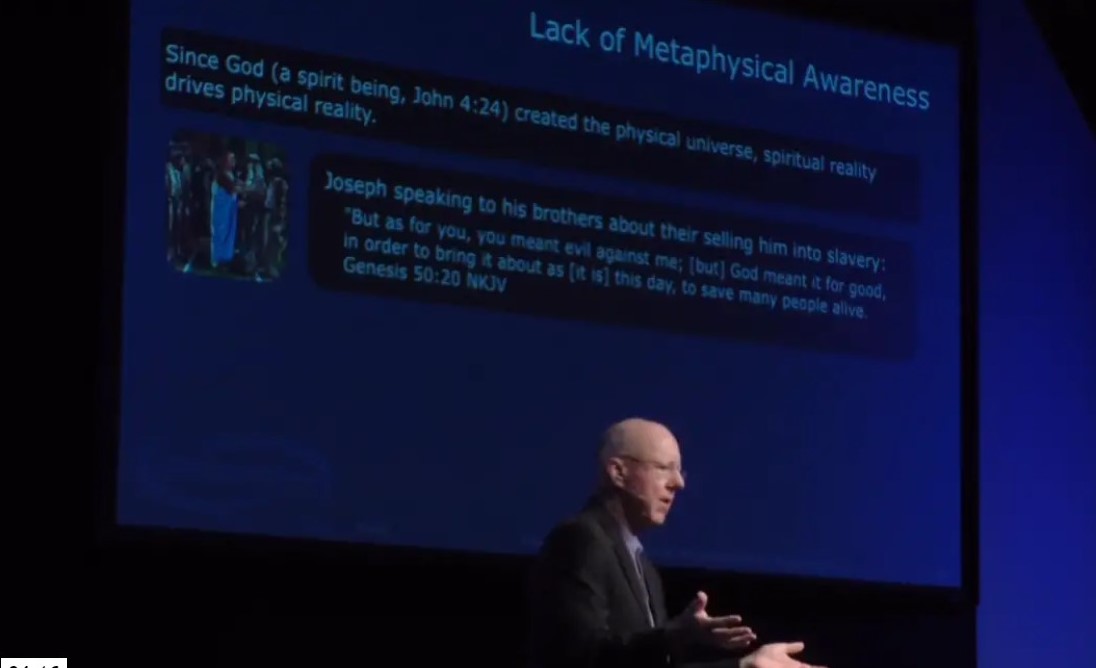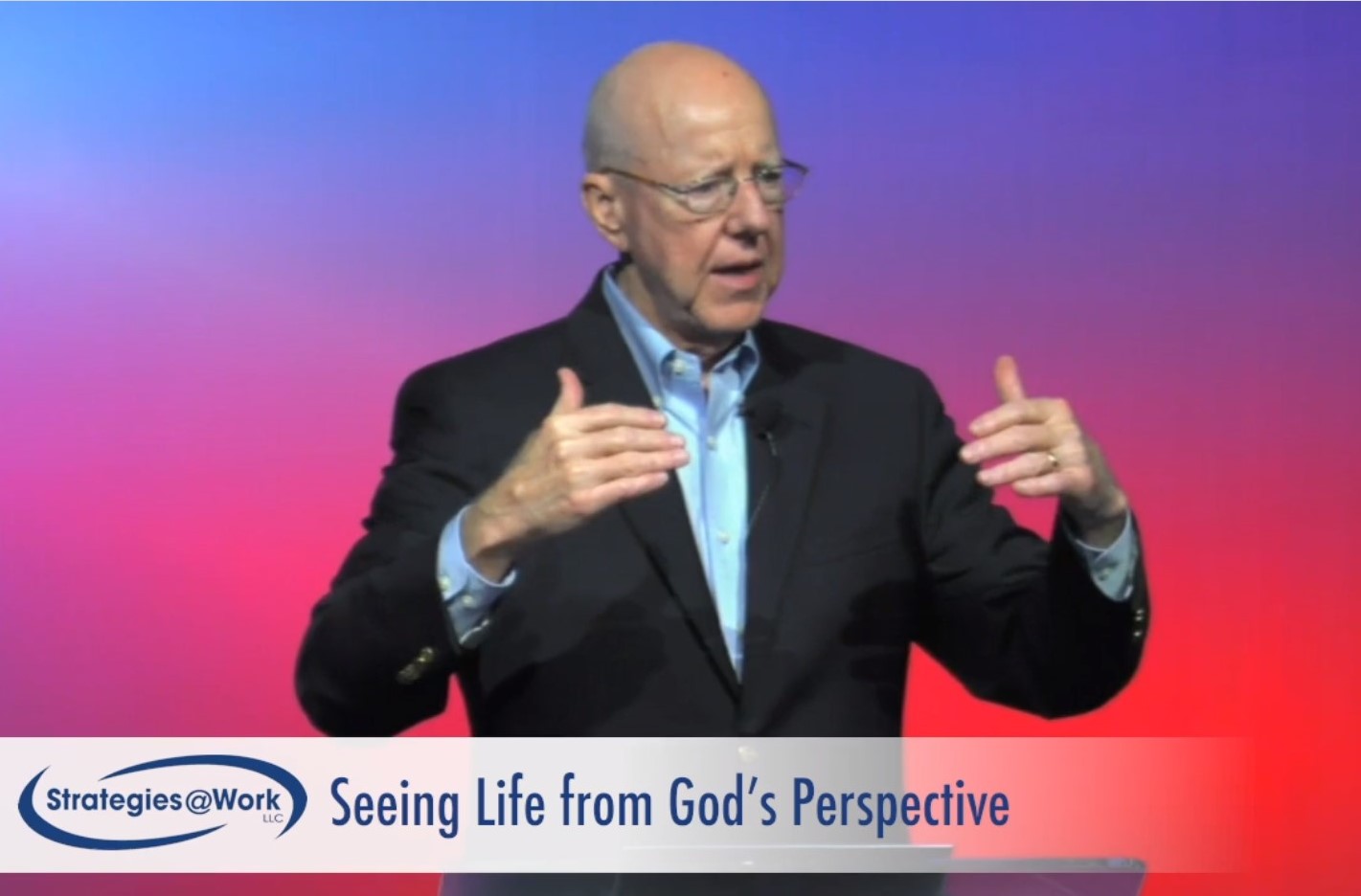 |
||||||
July 1, 2019 |
||||||
Gleanings |
||||||
A Greater Hope |
||||||
by Gerald R. Chester, Ph.D. |
||||||
| The movie The Martian (2015) is a fictitious story about an astronaut (Mark Watney) accidently left behind on Mars when a storm threatened the safety of his NASA exploration crew. The raging storm prompted an emergency launch. To execute their escape, the crew had to walk through the storm from their habitat to the launch vehicle—a distance of a few hundred yards. During this phase of the extraction, Watney was struck by flying debris. The dust storm was optically thick (visual visibility was severely impaired). Consequently, no one could locate the injured Watney, even after a hasty search and multiple attempts to communicate with him failed. He was presumed dead by the expedition commander; however, surprisingly the injured Watney survived. Eventually, NASA became aware that he was alive and established contact with him. The rest of the movie chronicles the risky one-and-a-half-year odyssey of his survival and eventual rescue. The cost, both in terms of manpower and resources, was staggering, plus the rescue crew put their own lives at risk, with no guarantee that their efforts would be successful. The commitment to rescue Watney was a great relief to him. Initially, he was alone on Mars with limited life support resources and no ability to communicate with NASA. Rescue appeared hopeless until communication with NASA was finally established. The Martian was one of the most popular movies of 2015, perhaps because it was a “feel good” experience for the audience. But in reality would NASA invest so much and risk additional lives to rescue one person? An atheistic worldview asserts that human life has no purpose; the only value is the modest worth of the chemicals that comprise the human body. A recent article estimated the value of this to be $5.1 Globally, during the past two hundred years, atheism has been the fastest-growing worldview2 and is now probably second only to Christianity in the number of adherents. Why then would an increasingly atheistic world, which places so little value on human life, invest and risk so much to save one person? Granted, this scenario is a work of fiction. But in the summer of 2018, there was a real-life situation in which the world invested enormous resources to save thirteen people (a soccer team of young boys and their coach) trapped by rising flood waters in a cave in Thailand. A cost estimate for this effort was one rescuer dead, countless hours of volunteer time, and approximately ten million dollars.3 In both the fictitious and real-life scenarios, atheism cannot explain the actions taken to save people doomed to death. In the Thailand rescue, some credit the effort to Buddhism, but Buddhism values Karma, a form of fatalism. Fatalism does not place a high value on individual human life. So, neither atheism nor Buddhism can explain these scenarios that seem to place such a high value on human life. More than 90 percent of the global population is an adherent to one of five worldviews: Christianity, atheism or agnosticism (secular humanism), Islam, Hinduism, and Buddhism. Of these worldviews, only Christianity places a high value on individual human life. Therefore, Christianity was the underlying value system projected by both the Hollywood movie and the rescue in Thailand. Singularly, Christian thinking asserts that God is sovereign, intentional, and strategic. Therefore, God creates each person for his purpose. Each human has value by virtue of being created and called to serve the will of the Creator. Humans that value the God of Christianity value his purpose and seek to help one another fulfill their roles in his purpose. Behind the commitment of NASA to rescue Watney and the rescue of the soccer team in Thailand was the presumption of the value of human life that comes from a sovereign, intentional, strategic Creator. Such a Creator creates humans with intent and purpose. It is the responsibility, therefore, of everyone to seek to realize his or her potential. The impediment to releasing human potential is sin. The Old Testament account of the failure of Israel to obey the Mosaic Law illustrates that mankind lacks the potency to overcome sin to enable a person to fulfill his or her purpose. Jesus came to provide the basis for forgiveness of sin and, therefore, acceptance with God. Consequently, through regeneration, based on the redemptive work of Jesus, people enjoy not only forgiveness of sin but also deliverance from sin. Deliverance from sin, though not perfect until the next existence, enables people to have a level of success in realizing their divinely ordained potential. In other words, Jesus empowers human potential. Since the advent of Jesus and the establishment of the New Testament eκκλησiα4 (transliterated ekklisia or ecclesia, commonly translated church) two thousand years ago, the reality of the salvation from sin has been most clearly seen. Before the first advent of Jesus, the Old Testament eκκλησiα (Israel) was impotent because of sin. Now after the first advent of Jesus, the power of his saving grace is more evident. In other words, the members of the New Testament eκκλησiα can efficaciously (though not completely) be delivered from sin enough to realize human potential as few did in Old Testament times. This explains the advancements in technology since the advent of Jesus.5 Before the first advent of Jesus, technological advancement was tepid. But since the sixteenth century, men and women, mostly Christians, have discovered a plethora of marvelous technologies that have greatly enhanced mankind’s quality of physical life. This clearly has added hope to humanity but there is a greater hope: the hope of eternal life that is only available through Jesus.6 Watney’s hope was to be rescued from Mars to continue his life on earth. The Thailand soccer team hoped to be rescued to continue their lives on earth. In both scenarios, the hope was for a long life and a purposeful physical life. The hope found in Jesus is, however, more than a long and purposeful physical life; it is the hope of eternal spiritual life. And the hope of eternal spiritual life is more important than a long physical life well lived. Real hope transcends physical life. Real hope comes from knowing Jesus. The role of the New Testament eκκλησiα is to be the incubator and sustainer of the people of God so that they can enjoy real hope and fulfill God’s purpose both in this existence and beyond. The Gospel accounts and the book of Acts are the biblical record of the transition from the failed Old Testament eκκλησiα, based on human potency, to the successful New Testament eκκλησiα, based on divine potency. This transition highlighted the difference between law and grace as the basis for redeeming mankind from the penalty, power, and presence of sin. And it provides a glimpse of the divinely ordained potential of humanity through deliverance from the bondage to sin. The original apostles were the founding fathers of the New Testament eκκλησiα. The first local expression of the New Testament eκκλησiα was in Jerusalem. From there, the New Testament eκκλησiα grew and spread to all ethnic groups and will continue until the second advent of Jesus. A greater hope is, therefore, an eternal hope—a hope beyond just physical survival and a life well lived. A greater hope includes eternal life that singularly comes through the grace of Jesus. In a world that increasingly rejects Jesus, there is still a celebration of the values of Christianity as evidenced by the eager willingness to invest so much to save so few both in a work of fiction and in reality. To celebrate Christian values and then claim to be an atheist is hypocrisy. Humans were created by God. All humans inherently know God exists but many deny him; however, they cannot live consistently with their denial.7 The realities of life do declare the glory of God.8 Of this, there can be no denial. He who has an ear, let him hear. _____________________________1. https://www.thoughtco.com/worth-of-your-elements-3976054. 2. http://strategieswork.net/publications/gleanings/2018/2018-08.htm. 3. https://www.quora.com/What-is-the-estimated-cost-for-saving-the-boys-caught-in-the-cave-in-Thailand. 4. eκκλησiα is a Greek word that means a group of people called out to make a ruling decision for the community. See Acts 19:39 for a functional example. Jesus used this word to identify his called-out people who are to project his rule. This word was also used in reference to Israel in the LXX version of the Old Testament. 5.How Christianity Changed the Word by Alvin J. Schmidt. 6. John 14:6. 7. Romans 1:18ff. 8. Psalm 19:1–3. |
||||||
| Quick links | ||||||
Teaching: A Great Hope (teaching from Acts 1) |
||||||
| Upcoming Training | ||||||
SLA Alumni Event: Blocks to Discovering Your Purpose |
||||||
| Recent Trainings | ||||||
| Social Media | ||||||
| Gleanings | ||||||
| Other | ||||||
|
||||||







.png)